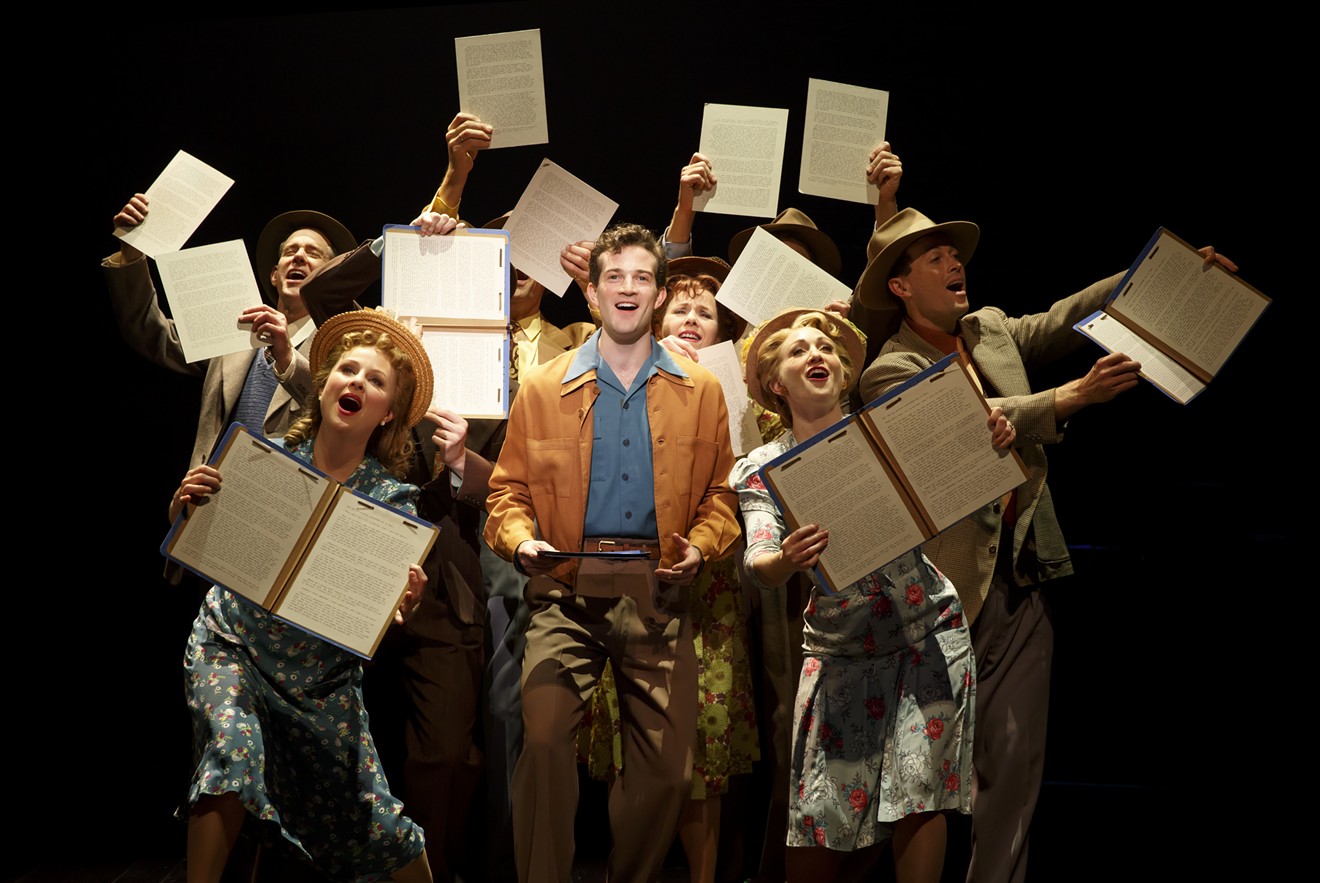Although best known to many as a comedian, Martin is a talented musician. Martin’s musical talent has won him Grammys, including one for best American roots album, Love Has Come For You, a collaboration with musician and songwriter Edie Brickell. The pair wrote a musical that premiered in 2014 and is touring the country. Bright Star opened at the Winspear Opera House on Tuesday night.
At its heart, Bright Star is a sad story, but a steady stream of unlikely coincidences changes its trajectory. The title Bright Star and song titles such as “The Sun is Gonna Shine” indicate the perspective the creators chose for the play. Martin and Brickell took this sad story and wrote a toe-tapping musical packed with songs full of upbeat, rhyming lyrics.
Inspired by true events, Bright Star is the imagined story of Alice Murphy, a young woman, unmarried and pregnant in 1920s rural North Carolina. In 1924, an unmarried woman who became pregnant could be banished from her home and forced to give up her baby. To avoid the shame and scandal of an out-of-wedlock birth, her father and her boyfriend’s father force Murphy to leave town. When the baby is born, he is ripped from her arms.
Bright Star showcases Martin and Brickell’s country-bluegrass style, especially on the knee-slappin’, foot-stompin’ “Whoa Mama.” However, songs intended to reveal the show’s sadder moments fall flat.
A log cabin on the Winspear’s stage housed the immensely talented orchestra, including bluegrass’ requisite banjo and mandolin. The musicians and their instruments are highlighted at the opening of the second act, giving the audience a welcome opportunity to show appreciation.Bright Star showcases Martin and Brickell’s country-bluegrass style especially on the knee-slappin’, foot-stompin’ “Whoa Mama.” However, songs intended to reveal the show’s sadder moments fall flat.
tweet this
The story's plot is separated by two decades and takes place in the 1920s and the 1940s. The story’s time shifts are made clear by the clever use of scenery, casting and costuming. This was done especially well in the initial time change, when ensemble dancers serve as a backdrop for Murphy to step out of the 1940s and into the 1920s and tell her backstory with the song “Way Back in the Day.”
Audrey Cardwell shone in both iterations of Murphy. Her sparkling voice and spunky personality as the young Murphy are outdone only by a realistic portrayal of her disillusioned older self. Her rendition of “At Long Last” was the musical highlight of the night, earning her a standing ovation.
Jeff Blumenkrantz as Daryl and Kaitlyn Davidson as Lucy were highlights, providing comic relief throughout. The endearing Henry Gottfried convinced as Billy Cane, who returns from World War II hoping to fulfill his dreams of becoming a writer at a big-city newspaper where Murphy is the tough-as-nails editor. Patrick Cummings played Jimmy Ray, Murphy's one true love and the baby’s father. Cummings was charismatic as Murphy's young lover, but his portrayal of the older Jimmy Ray lacked feeling.
In general, emotion is the missing element in Bright Star. The pace of the show’s action made it difficult to develop a connection with the characters or feel concern for their fate. But the music in Bright Star managed to hold things together even when the story seemed in danger of unraveling.











